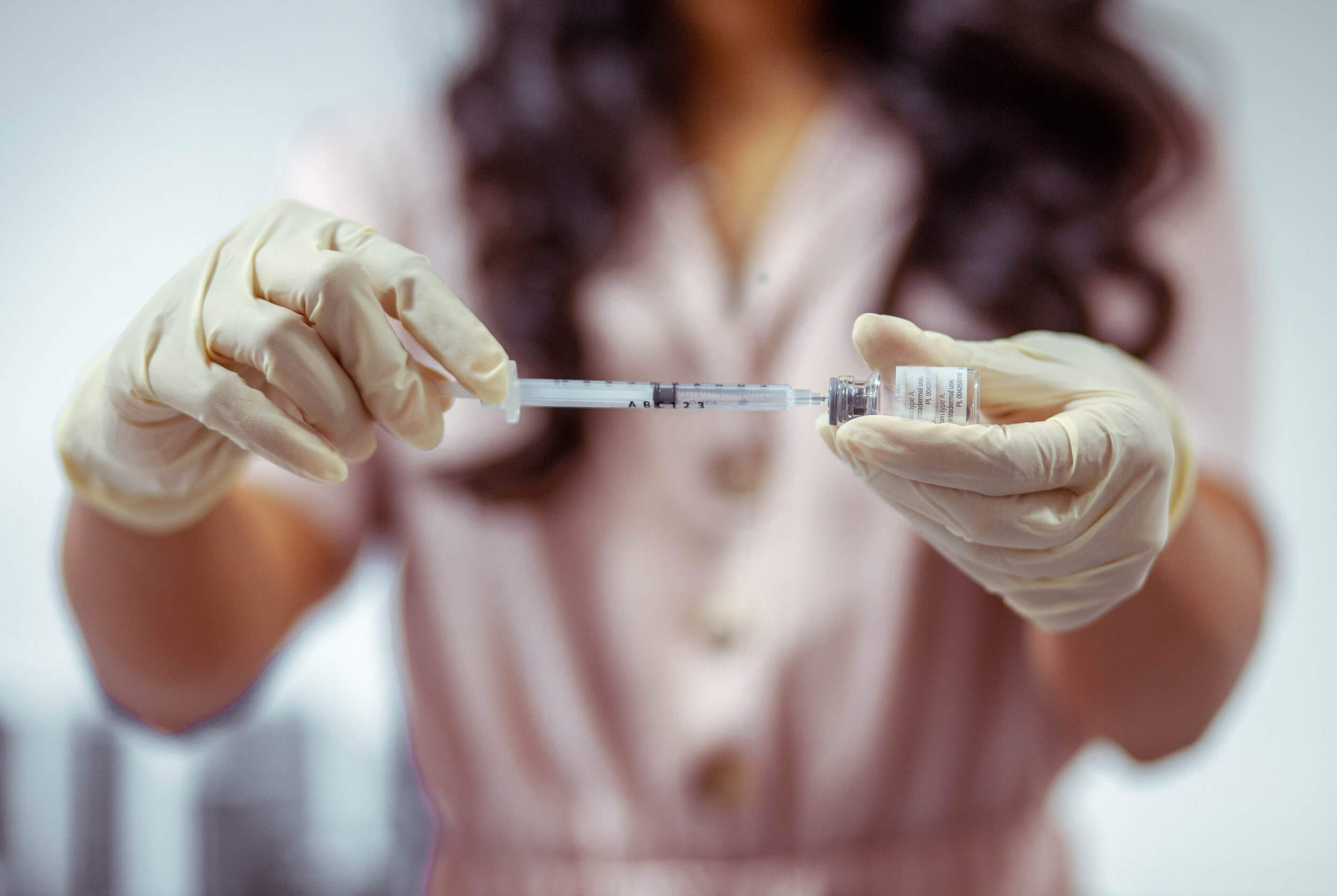TOP 10 ANTI-WRINKLE TREATMENT QUESTIONS ANSWERED
Whether you’re considering anti-wrinkle treatment for the first time, or you just wanted to know more about your favourite treatment, keep on reading. Dr Jaymi Lad talks through the most frequently asked questions about anti-wrinkle treatment asked by her patients.
1. What is anti-wrinkle treatment?
Anti-wrinkle treatment, a prescription-only medication, is a clear liquid that has multiple cosmetic and medical uses when injected into the skin. The anti ageing effects of this treatment were discovered accidentally by doctors Jean and Alistair Carruthers in 1992. They injected anti-wrinkle treatment into the muscles around the eye to treat blepharospasm (spasm of eye muscles) in their patients and noticed the reduced appearance of wrinkles in this area.
2. How does anti-wrinkle treatment work?
When injected into the skin, it causes temporary muscle relaxation by blocking the release of a chemical called acetylcholine, which causes muscle stimulation. The muscles targeted with this treatment are those which appear during certain facial expressions, which when repeated over time, cause fine lines and wrinkles. Anti-wrinkle treatment will not stop you from expressing yourself. The ideal treatment outcome is a small amount of muscle movement, so the treatment looks natural. Very high doses of treatment are needed to fully paralyse the muscle, and this is not recommended. When a trained aesthetic doctor delivers this treatment most people will not notice that you have had anti-wrinkle, but are likely to comment on you looking fresh-faced and more relaxed.
3. When should I start having treatment for wrinkles reduction?
There is no set age a person should start having treatment, as it is very much dependant on the individual and how they age. Factors such as genetics, smoking, alcohol, sleep, stress and sun exposure can all affect the rate of skin ageing. Wrinkles occur in our skin due to the loss of collagen and elastin, reducing the elasticity and strength of our skin. Javivo suggests the best time to consider treatment is when lines and wrinkles start to appear on your skin at rest. This is usually around the late 20s to mid-30s. The deeper these lines get the harder they will be to treat!
4. Does anti-wrinkle treatment hurt?
We compare injections to a small scratch or pinching sensation which disappears in seconds. Most clients say it’s relatively pain-free, however, an anaesthetic cream can be used. The treatment will involve a trained doctor injecting measured doses of treatment into the required areas using a small needle.
5. How long does anti-wrinkle treatment take to work?
The results are not immediate. It can take between 3-14 days to see an effect. Most people begin to see results in 5-6 days with the maximum effect seen at 14 days.
6. How long does anti-wrinkle treatment last?
The treatment lasts between 2-6 months, on average 3 months, but this does vary between individuals. The treatment gradually wears off and the treated muscles will slowly regain the ability to move over time.
7. Who should avoid this treatment?
All women who are pregnant or breastfeeding should not get anti-wrinkle treatment. It is not known to be harmful to unborn babies, however, due to the lack of research in this area (for the obvious reasons), it is advised against. There are certain medical conditions where this treatment is a contraindication, such as muscle disorders.
8. Is this treatment safe?
Anti-wrinkle reduction is a relatively safe treatment if injected by a suitability qualified practitioner. Common side effects are related to the use of an injection and include redness of the skin, tenderness, swelling and bruising. This typically resolves in a few hours. More rarely, the product can cause drooping of the eyelid or brow, or provoke an allergic reaction. Javivo always go through the full list of possible complications during your consultation and how they can be managed. There is no anticipated downtime after having this treatment.
9. Is anti-wrinkle for men too?
Anti-wrinkle treatment can be used in men and women to treat fine lines, wrinkles and medical conditions. Our qualified practitioners are trained in adjusting dosing and distribution to the suit the individual’s needs.
10. What are the medical uses of anti-wrinkle treatment?
As well as softening and smoothing wrinkles on the face, anti-wrinkle treatment has many medical uses. It can be injected in the armpits to reduce symptoms of excessive sweating, which is medically known as hyperhidrosis. It can also be used to relieve symptoms of bruxism (teeth grinding) and migraines. Anti-wrinkle injections can be used to treat certain types of muscle spasm disorders too.
For more information visit our page on anti-wrinkle treatment, comment below or book a consultation with an aesthetic doctor at Javivo.



